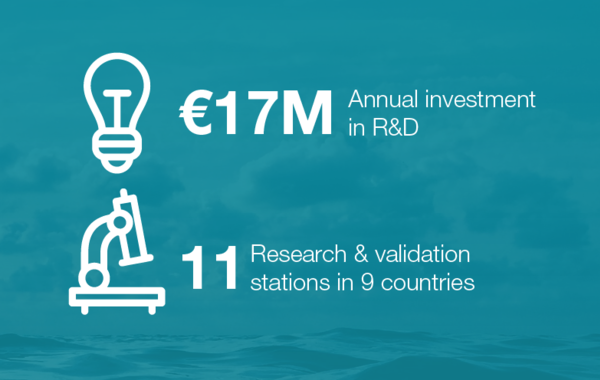There has been increasing focus over many years on overcoming traditional reliance on formulating feeds from conventional but finite marine ingredients, particularly fishmeal and fish oil.
While the fishmeal and fish oil inclusion rates in aquafeeds have followed a steady downward trend as the feeding efficiency of aquaculture systems have advanced, selective use alone is not enough to ensure that the required long-term growth rates can be sustained by the sector. A further solution that has emerged in recent years is the application of new raw materials and specialty ingredients, commonly known as “novel ingredients”. These technologies can be used both through replacement and interchange with conventional ingredients.
Worldwide, there has been increased activity focused on the R&D of novel ingredients with the aim to ascertain new protein raw materials and alternative sources of essential omega-3 long chain fatty acids for use in aquaculture feeds. The technologies currently at the forefront of this movement include algae, microbial and insect-based protein and oil sources.
Skretting has long been very supportive of the development of novel ingredients and helping leading innovators achieve scalability. Indeed, some of our first diets comprising EPA and DHA-rich algal oils and insect proteins are already being commercially used. As soon as these were available and verified through extensive R&D, Skretting launched salmon diets that contained no fishmeal or fish oil.
To support the next wave of advancements in the novel ingredient space, we are continuing to invest considerable resources into exploring the commercial application of other alternative ingredients. This work includes fully understanding their viability from nutritional, sustainability, quality and safety, regulatory and financial perspectives.


